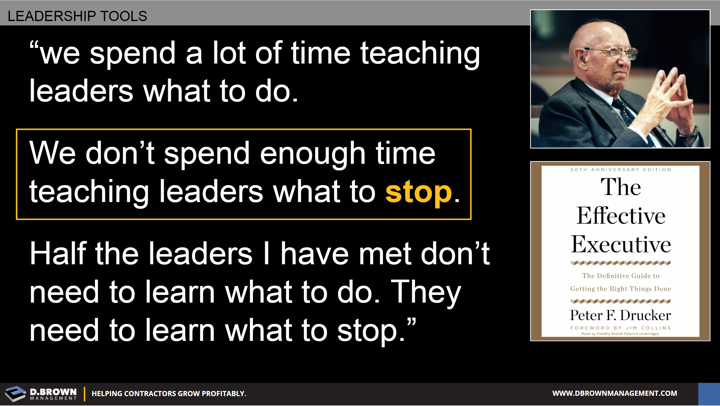Those same skills that make a leader extremely effective at the project level don’t fully translate at the business level as their careers and responsibilities evolve.
The tendency as a leader’s role evolves is to keep adding things to their list of responsibilities and to those of their team. There is no shortage of business books, training programs and even LinkedIn Posts that provide a ton of great ideas.
What’s important is to regularly pause and reflect about what you can STOP doing to allow for new ideas if they are really better:
- Which meetings can you stop having all together in the company? Which ones can you stop leading yourself? Which ones can you stop attending? What’s one thing you can do to streamline one of the meetings?
- What is one small task that you do regularly which you can stop doing? Don’t rationalize it away as “only a few minutes” - challenge yourself to either stop doing it all together, set it up as a rotating responsibility for cross-training or delegate it. Do this regularly and you will be surprised at the results.
- What is one behavior that is no longer effective in the current role you are in? For instance a Superintendent on a project needs to be the master of seeing every detail that isn’t right and correcting it quickly. The CEO of a $50M mechanical contractor is far better served finding everything that is going right and pointing it out clearly to their team leaving the business punch listing to someone else.

